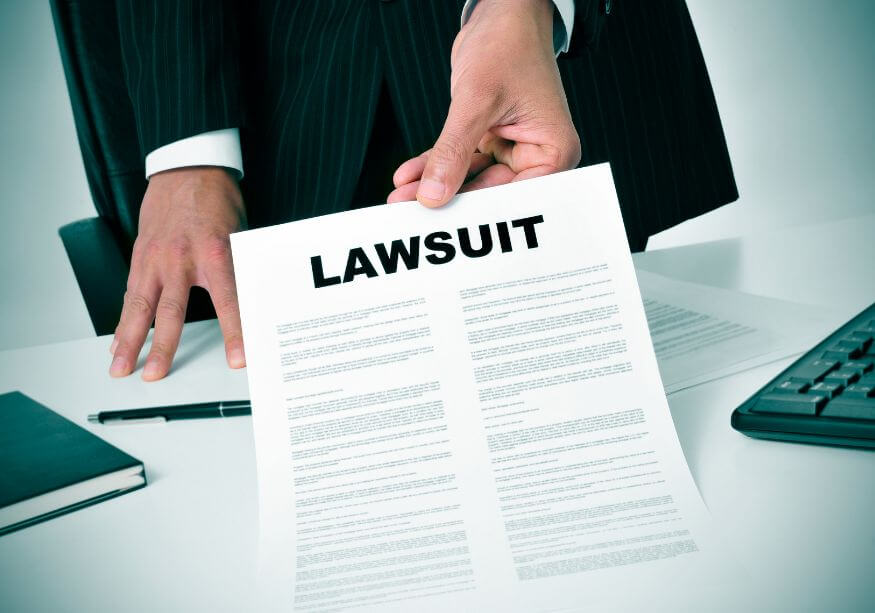When you’ve been injured due to someone else’s negligence, you have the right to seek compensation. While hiring a lawyer is common, it’s possible to navigate the process on your own.
In this guide, we’ll break down the essential steps to help you file a personal injury claim without legal representation. From gathering evidence to negotiating with insurance companies, you’ll discover practical tips to assert your rights effectively.
How to File a Personal Injury Claim Without a Lawyer

When you’ve been injured due to someone else’s negligence, navigating the legal process can be daunting. While hiring a lawyer is often recommended, there are situations where you may choose to handle your personal injury claim independently.
A personal injury lawsuit is a legal procedure that helps an injured person claim compensation from the responsible party for causing their injury. Such cases usually occur due to incidents like car accidents, slips and falls, medical malpractice, and defective products.
The injured person also known as the plaintiff usually collaborates with a lawyer to collect evidence, file a lawsuit, and settle or proceed with a trial. Compensation in personal injury lawsuits can cover medical expenses, lost wages, pain and suffering, and other injury-related damages.
1) Evaluating Your Claim
The first stage in filing a personal injury claim is determining the viability of your case. so here are some factor
- Liability:- Who is responsible for causing the harm?
- Damages:- What are the costs associated with the harm?
- Causation:- Did the harm result directly from the accident or injury?
- Collectibility:- Will the responsible party be able to pay the damages awarded?
2) Gathering Evidence
To prove your case, it’s important to collect evidence that demonstrates the severity of your injuries and the accountability of the person or entity responsible. This evidence may encompass:-
- Medical records and bills
- Police reports
- Witness statements
- Photographs or videos of the accident scene
- Expert testimony
Be sure to collect as much evidence as possible to strengthen your case.
3) Calculating Damages
The next step is to calculate the damages that you’re seeking. This may include:-
- Medical expenses
- Lost wages
- Pain and suffering
- Property damage
Be sure to keep detailed records of all expenses related to your injury, as you’ll need to provide proof of these costs.
4) Writing a Demand Letter
Once you’ve gathered evidence and assessed your losses, you’ll need to write a demand letter to the liable party or their insurance company. This letter should describe the harm done, the evidence supporting your claim, and the monetary damages you seek.
5) Negotiating a Settlement
If the responsible party or their insurance company agrees to your demand, you’ll be able to negotiate a settlement. This may involve back-and-forth negotiations to determine an appropriate amount of compensation.
6) Filing a Lawsuit
If negotiations fail, you may need to file a lawsuit to seek compensation. This involves filing a complaint in court and going through the litigation process.
7) Representing Yourself in Court
If you decide to represent yourself in court, it’s important to be prepared. This may involve:-
- Researching the law and court procedures
- Preparing and filing court documents
- Presenting evidence and arguments in court
- Cross-examining witnesses
- Following court rules and procedures
Read More – What happens when you reject an insurance settlement offer
When to Consider Self-Representation in Legal Matters
Self-representation, also known as pro se representation, occurs when an individual chooses to represent themselves in legal proceedings without hiring an attorney. While having legal counsel is generally advisable, there are situations where self-representation might be a viable option:
1. Simplicity of the Case: For straightforward legal matters, such as small claims court disputes or minor traffic violations, self-representation can be practical. Complex cases involving intricate legal issues may require professional assistance.
2. Limited Financial Resources: Hiring an attorney can be expensive. If you cannot afford legal fees, self-representation becomes a necessity. Many legal aid organizations provide guidance to pro se litigants.
3. Personal Knowledge and Skills: Some individuals have a good understanding of the legal system, relevant laws, and court procedures. If you feel confident in your ability to navigate the process, self-representation might be suitable.
4. Emotional Investment: When the case involves deeply personal matters, such as family law disputes or civil rights issues, self-representation allows you to advocate for yourself directly.
5. Control Over the Case: Representing yourself gives you control over your legal strategy, decisions, and timing. You won’t be dependent on an attorney’s availability or choices.
However, there are risks associated with self-representation:
1. Lack of Legal Expertise: Legal matters can be complex, and without legal training, you might miss critical details or make procedural errors.
2. Emotional Bias: Emotional involvement can cloud judgment. An attorney provides an objective perspective.
3. Courtroom Etiquette: Understanding courtroom procedures, rules of evidence, and decorum is essential. Lack of familiarity may harm your case.
In summary, consider self-representation when the case is straightforward, your financial resources are limited, and you possess the necessary knowledge. Otherwise, seek professional legal advice to ensure the best possible outcome.
Important First Steps and Tips
If you’re considering filing a personal injury claim without a lawyer, here are some important first steps and tips to guide you through the process:

1. Assess the Viability of Your Claim:
- Determine if your injuries are minor or significant. For minor injuries (like a sprained wrist from a slip and fall), self-representation may be feasible. However, seeking legal assistance is advisable for serious injuries resulting from car accidents.
- Understand the claims process and be prepared to put in the time and effort.
2. Gather Evidence:
- Photograph the property damage, accident scene, and your injuries.
- Obtain a copy of the police report (if applicable).
- Seek medical treatment promptly.
- If available, use “personal injury protection” (PIP) insurance coverage to cover initial bills, followed by your health insurance.
3. Estimate Your Damages:
- Calculate the value of your claim. Consider medical expenses, lost income, and pain and suffering.
- Be realistic about the compensation you deserve.
4. Write an Effective Demand Letter:
- Clearly state your claim, including details of the incident, injuries, and damages.
- Specify the compensation you are seeking.
- Send the demand letter to the responsible party or their insurance company.
5. Negotiate a Settlement:
- Be prepared for counteroffers and negotiations.
- Understand when to stand firm and when to compromise.
- Document all communication.
6. Know When to Seek Legal Help:
- If your claim is complex or high-value, consult with a personal injury attorney.
- Lawyers can handle adversarial situations and credibly threaten legal action if needed.
Remember, representing yourself can save time and money, but it’s essential to be well-informed and recognize when professional assistance is necessary. Good luck with your personal injury claim.
Read More – Top 10 Best Phoenix Personal Injury Lawyers
The duration to resolve a personal injury claim without legal representation varies, commonly settling within a few weeks to months after the injury, but can extend up to one to two years, influenced by the extent of medical care required.
Key factors include the severity of injuries, with minor ones potentially being resolved faster through self-representation, whereas serious injuries often necessitate a lawyer’s involvement. The complexity of the claim and the insurance company’s readiness to offer a fair settlement also play crucial roles.
For those considering self-representation, understanding the claims process, accurately estimating damages, and crafting an effective demand letter are vital steps. However, for complex or high-value claims, seeking professional legal advice is advisable. Ultimately, the decision to self-represent should be carefully considered, taking into account the specifics of each case.
conclusion
To sum up, even though hiring a lawyer can simplify the procedure of submitting a personal injury claim, you can still file a claim independently.
By assessing the validity of your case, amassing evidence, determining the damages, and either negotiating a settlement or representing yourself in court, you may be eligible for the compensation you’re entitled to. Remember to take into account the success tips and frequently asked questions mentioned earlier to assist you in navigating the process.
FAQ’S
1. How do you make a personal injury claim?
Initiate a personal injury claim by gathering evidence of your injury and the cause, then notify the responsible party or their insurer of your intention to claim.
2. What do you have to prove in a personal injury claim?
You must prove negligence by showing the responsible party had a duty to prevent harm, breached that duty, and directly caused your injury and damages.
3. How much do you get for a personal injury claim?
Compensation varies based on injury severity, lost wages, medical expenses, and other damages. Settlements can range from thousands to millions of dollars.
4. How is pain and suffering calculated in North Carolina?
North Carolina calculates pain and suffering by multiplying actual damages (like medical bills and lost wages) by a factor reflecting the injury’s severity, considering caps on damages.
5. What do I need to make a claim?
To make a claim, gather medical records, evidence of lost wages, documentation of the incident, and any correspondence related to the injury.
6. What do I need to make a compensation claim?
For a compensation claim, compile detailed medical documentation, evidence of financial losses, proof of fault, and any impact on your daily life or well-being.



